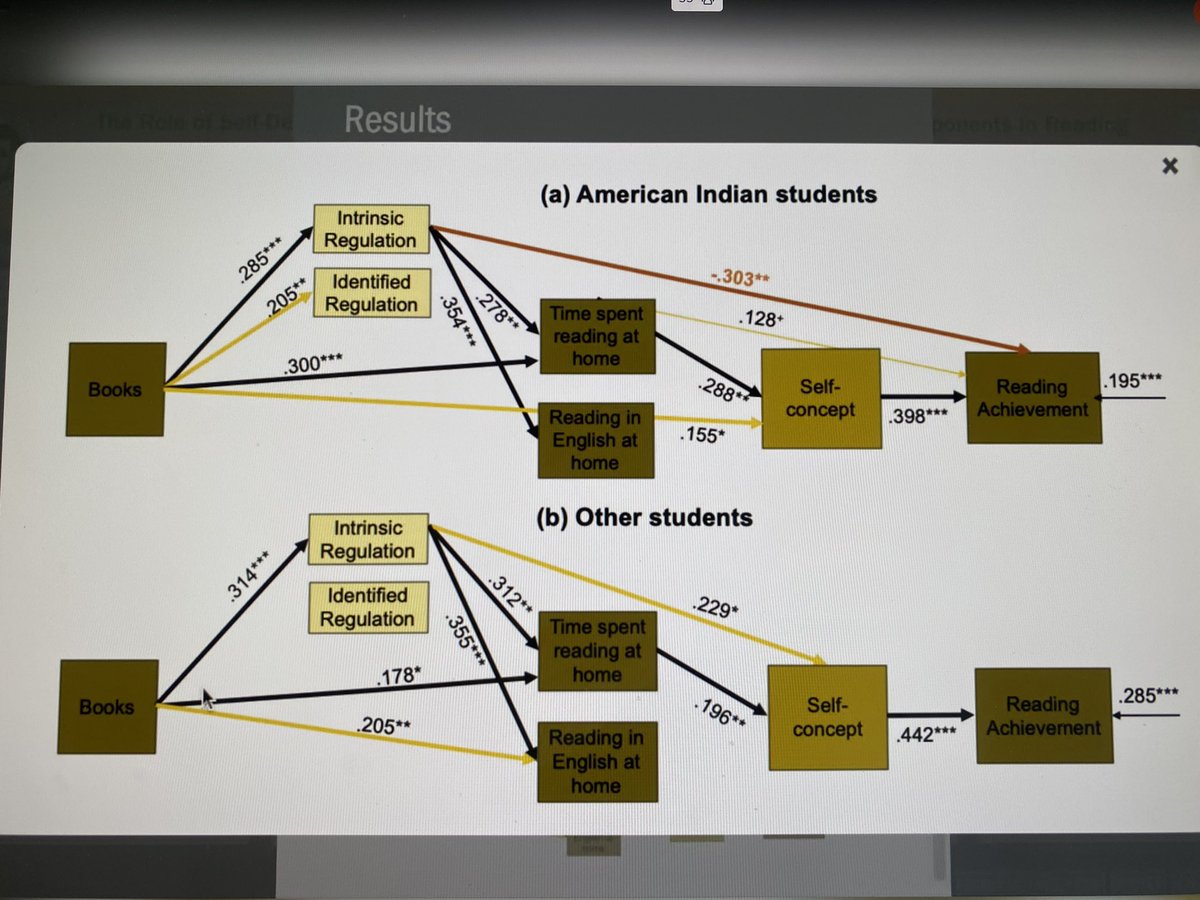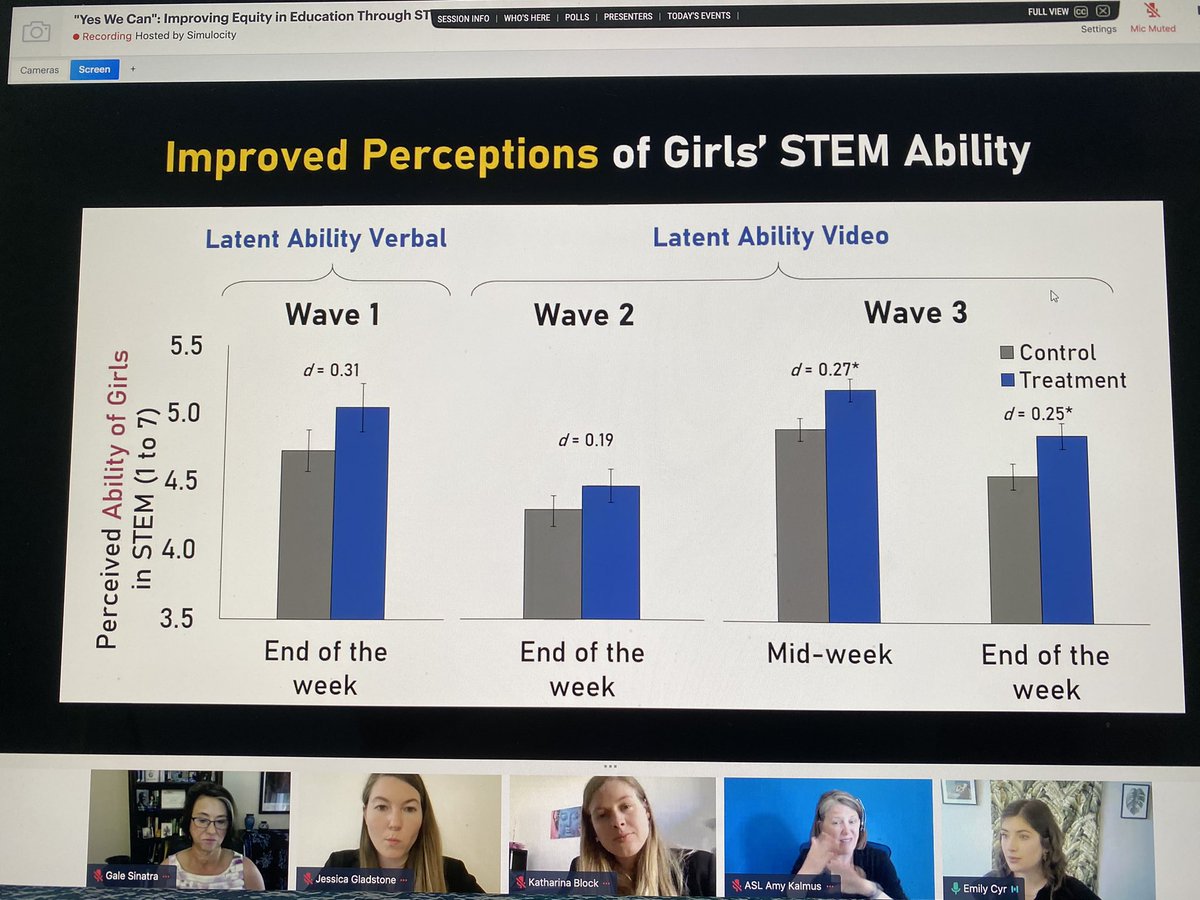
So many excellent points raised at the #AERA21 Next Steps in Theoretical Approaches to Understanding the Academic Motivation of Racially and Ethnically Diverse Students session! Feeling humbled by how much I have to learn and energized to do better research.
Sandra Graham: We have to do the best we can to recruit as many racially/ethnically diverse participants as we can. We can’t be combining all the non-White groups and comparing them to the White groups… It’s the numerical representation of these young people in those contexts.
Ellen Usher: We need to acknowledge who the research team is and their relationship to the people being investigated. Important for understanding the boundary conditions as to why our motivation theories do or do not work in different contexts.
Tim Urdan: Goal theory may not fit diff groups all that well. Lots of diff definitions of success possible in context. How self is defined in context may look diff for students from diff cultural/ethnic backgrounds. Let’s go back and question assumptions in fundamental theories.
Wendy Grolnick: Thinking about what our constructs mean in their historical/situational contexts. We have to be open to thinking about constructs in different ways. Self-determination theory goes deep into, what do people need? How do contexts meet or not meet those needs?
Revathy Kumar: When we do this research, we need to go beyond considering race as categorical variables. Because we’ve done so much survey research, we are thinking in very broad terms and not seeing through the eyes of the students or the teachers who are using these goals.
Sandra Graham: When we do comparative work, we need to have goal other than pure description. Need to be thinking about theories more generally. When we do find differences, instead of throwing up hands in perplexity, think about how differences can lead to theory refinement.
@DrJMatth My fear is that motivation over the next 20-30 years may become the next Blockbuster Video. Netflix revolutionized the "how" and made service more accessible to the public. My wish is more nimbleness in how motivation researchers integrate at the seams of diff theories.
@DrDeCuirGunby would like to see critical lenses and perspectives become more common so that we don't equate difference with deficit.
Revathy Kumar: Remember culture and culturally specific ways of acting/thinking. Everything we do in motivation is grounded in culture and context. Some constructs may be more relevant for some groups than for others. Be cognizant of who is generating knowledge.
Ellen Usher: As a White scholar, collaborate with scholars of color and make way for other voices to be heard. My own thinking evolves and sharpens when I work with people of color. Take steps to try to educate myself to be more thoughtful scholar in my research.
@DrJMatth Importance of centering students’ voices and perspectives, and privileging methods that allow for that. If you just give survey to a bunch of kids in high school, hard for you to think about context and culture. Do cognitive interviewing.
@WendyGrolnick Even if you find no mean differences between groups, reasons parents were putting structure into place for kids was very different. The way children experience different inputs into context could be wildly different. Ask children, what does this mean to you?
@DrDeCuirGunby Make sure we are putting readings from people of color in our classes.
Sandra Graham: Everyone has historically had something important to contribute to motivation research. The humility is what’s important. Scholars of color also need to be aware when we have contact with groups that aren’t our own.
Revathy Kumar: Keep educating ourselves and be aware of the social, historical, cultural context. Recognize that you may not be knowledgeable, and collaborate with people who are more knowledgeable.
@DrDeCuirGunby How do I make my study meaningful for the teachers and school community? It's often very appealing to be able to share their whole story. They want you to listen to them. Compensate people for their time. What can you do for them in return?
@tcurdan When talking to students who are not White, am I asking them to explain to yet another White person what their experience of racism is? Don’t put people in that position. Have students conducting the interviews who have more in common with the students being interviewed.
@DrNSafavian how do we change reward structures to value diversified methods? How do we broaden diverse perspectives in our community of scholars? There are systems that allowed us to have privilege to come together today.
Sandra Graham: Push envelope in editors/reviewers for more diversity. Use right language when don’t have White control groups to educate editors. Mobilize to push for big-resource entities like NIH and NSF to give funding for this work. Our good will is not enough—we need support
Have to end with @allan_wigfield: Time to listen and step back (quotes REM and Stephen Sondheim). 

• • •
Missing some Tweet in this thread? You can try to
force a refresh














